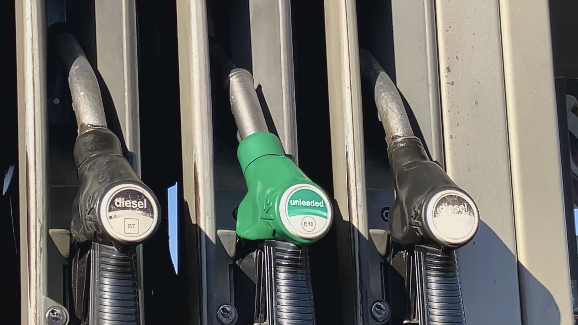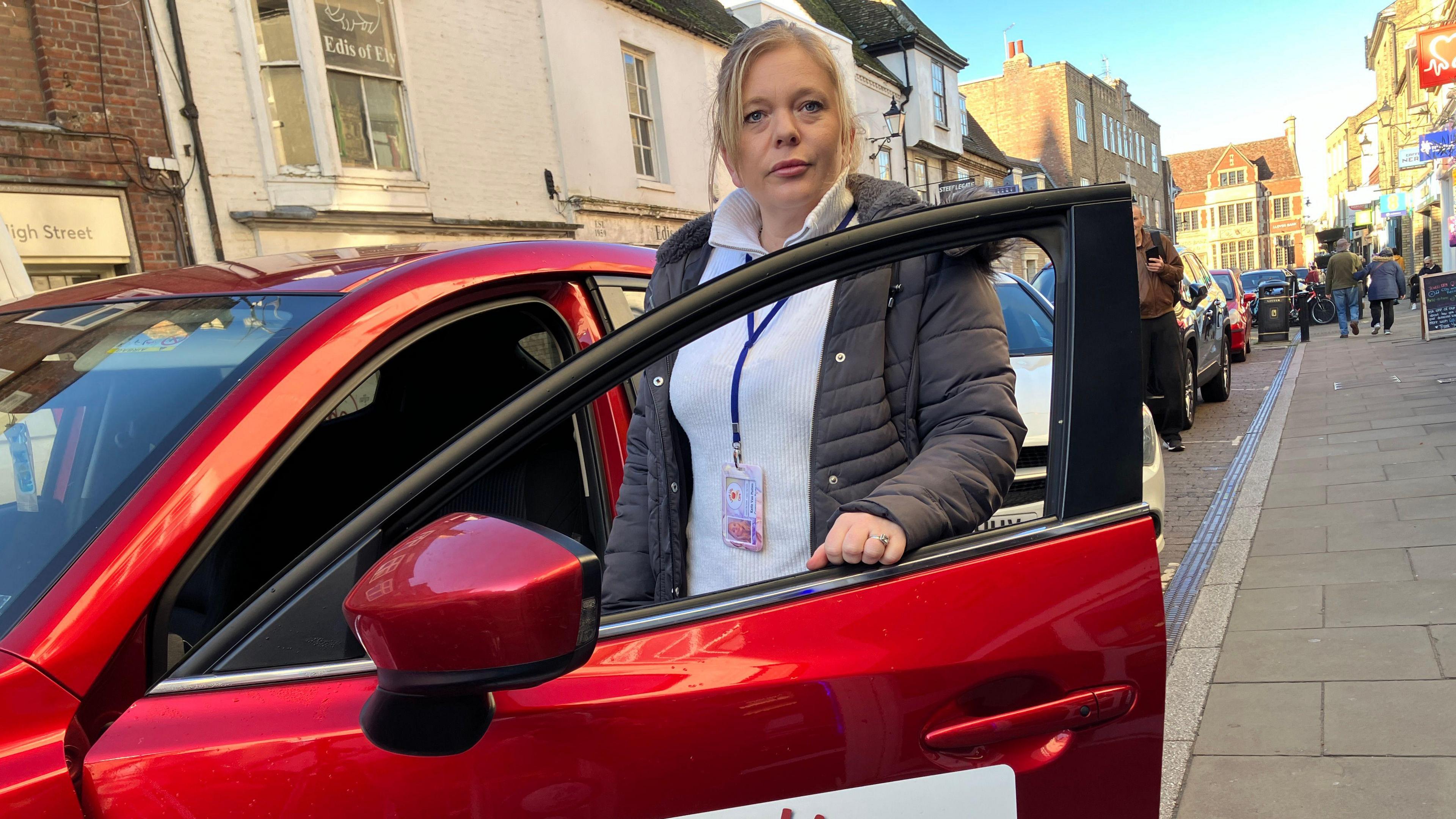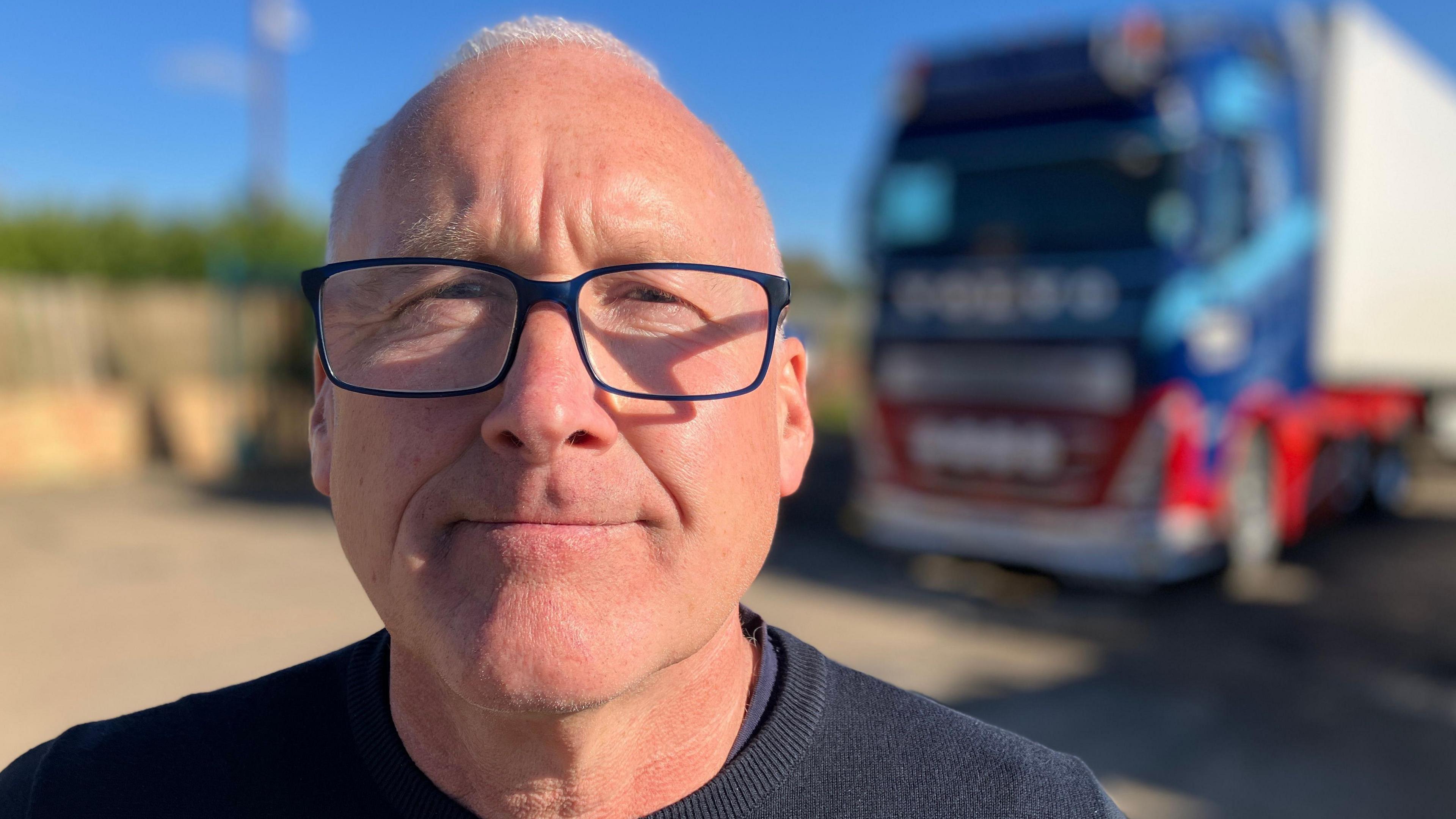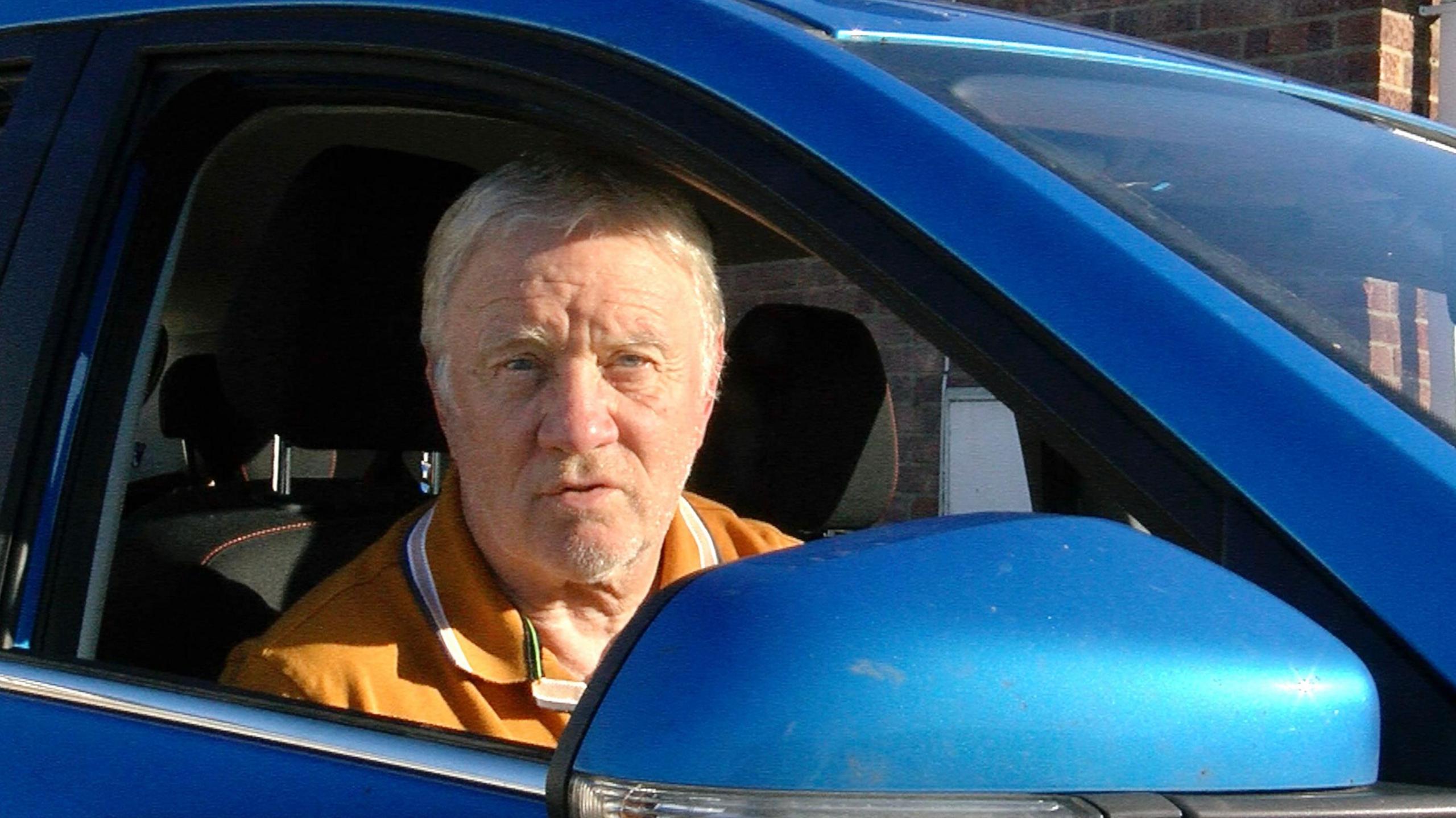Concerns in the countryside over fuel duty

Fuel duty has been either frozen or cut for the last 13 years. There are predictions that in this year's budget it will be increased.
- Published
There is growing speculation the government will increase fuel duty by between 5p and 8p a litre in this week's Budget. Campaigners say the high cost of rail travel and a promise to cut carbon emissions means not raising it is hard to justify. But businesses in rural Cambridgeshire tell the BBC any rise could be damaging.
The tax is levied at 52.95p a litre (VAT is extra) and is worth about £25bn a year to the exchequer. But since 2011 it has not gone up, and in 2022 the last government reduced it by 5p.
The government will not comment ahead of the Budget, but the Campaign for Better Transport says ending the 5p cut in fuel duty could raise £2.6bn a year.
'We could lose staff and reduce services'

Care provider Katie Thorogood says raising fuel duty could make it harder to recruit and retain staff
Katie Thorogood is one of the owners of Love Life Care, which supplies domiciliary carers to people in the Ely area.
The company employs 14 staff and spends about £1,000 a month reimbursing their mileage.
"For a small care company like ours, the cost of fuel already has an impact. If fuel duty does go up, we'll have to increase our fees that will impact on our clients," she says.
"We've noticed in the past [when fuel prices went up] that they tend to reduce their care packages, which is leaving them in a vulnerable position.
"This could put people off from wanting to work in the care industry, [which] is already struggling when it comes to recruitment. We might also have to cut down on the areas which we cover.
"So this is potentially putting us at risk of losing staff and reducing our capacity for care."
'We'll have to pass on the cost'

Haulier Trevor Rowell says any fuel duty increase will lead to higher prices
Trevor Rowell owns a haulage business in the Fens. He runs 14 lorries and mainly works for local farmers. His monthly fuel bill is £24,000.
"If there was an 8% increase in fuel duty, it would add just under £2,000 a month to our bills and drastically affect our business," he says.
"We couldn't sustain an increase like that. We'd have to go to our customers and tell them that we've got to have more money to do the job. Hopefully they'll understand and [we will] put our rates up.
"For the last 10 years fuel has been quite low, and with all our other costs going up that's been our saving grace.
"We're a struggling industry at the moment and to do this would be so damaging."
'Cars are not a luxury'

Chatteris driver Phil Coulridge says in many rural towns cars are a necessity
Phil Coulridge is part of the Chatteris Community Car scheme - a group of volunteers who drive residents to medical and other appointments.
The local council pays towards some of their fuel costs.
"For people living in Chatteris, cars are vital for their everyday existence. Without cars we are isolated," says Mr Coulridge.
"Chatteris doesn't have any trains. We have buses going to Ely and Huntingdon but we don't have buses around the town, so if people need to get to the surgery they have to walk or get one of the community cars to take them.
"Our local hospital is a 30-mile round trip and there is no straightforward bus service.
"If fuel duty goes up the effect on people's every day lives is going to be dramatic and terrible.
"Here cars are not a luxury for people, they're essential."
Related internet links
Fuel duty cut could be scrapped, says RAC
- Published29 August 2024
Petrol prices fall to lowest for three years
- Published25 September 2024
Lib Dems call for rural fuel duty relief expansion
- Published17 June 2024
Get in touch
Do you have a story suggestion for the East of England?
Follow East of England news on X, external, Instagram, external and Facebook: BBC Beds, Herts & Bucks, external, BBC Cambridgeshire, external, BBC Essex, external, BBC Norfolk, external, BBC Northamptonshire, external or BBC Suffolk, external.